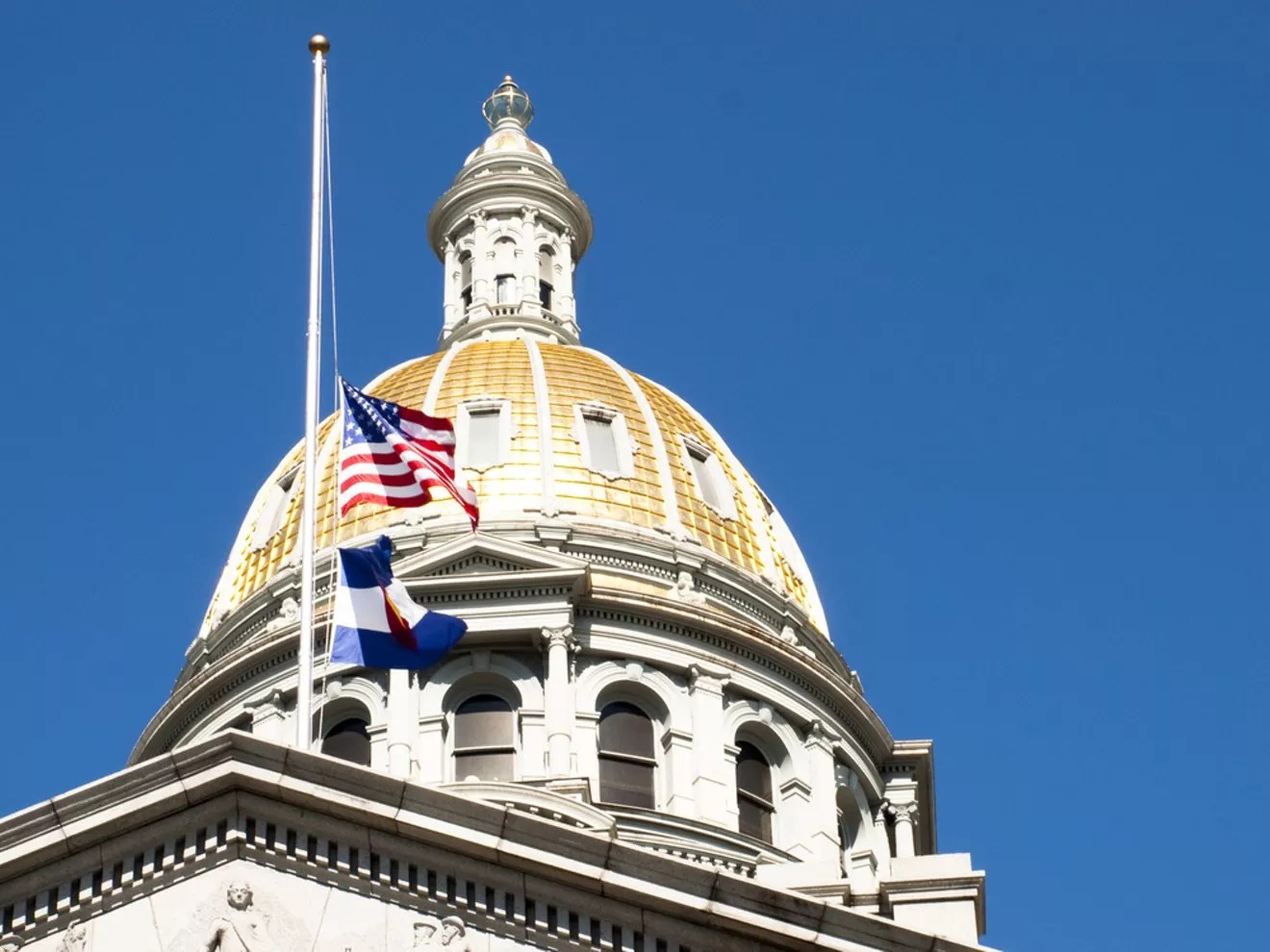
Arina P Habich/Shutterstock.com

Audio By Carbonatix
The Denver Museum of Nature & Science’s Institute for Science & Policy has earned a $100,000 grant from the National Conference of State Legislatures to explore creating a science policy fellowship program that would give state legislators direct access to doctoral-level scientific experts.
The grant is part of the NCSL’s State Science Policy Fellowship Planning Grant Initiative. According to Kristan Uhlenbrock, institute director, legislators are looking for help in making complex policy choices, and this grant could be an answer.
“Specifically, I’ve been told they’re looking for trusted resources and information and data and facts that they think they could rely on that isn’t necessarily coming from a lobbyist or coming from an advocacy organization,” she says. “Mostly, I think the need for this is in the early days of ideation of policy proposals.”
The program could help legislators make choices about issues like energy, air pollution, climate, water, public health and technology, Uhlenbrock suggests.
The Institute for Science & Policy, founded in 2018, is the DMNS’s civic engagement arm. It considers how science plays a role in policymaking and helps to foster productive dialogue – so the grant is a natural fit. Uhlenbrock says the institute created a strategic plan two years ago, and the idea for the fellowship originated there.
“We did a lot of research and interviews with members of our General Assembly and other government officials asking them what their needs were, where were their gaps, what would be beneficial to them,” she explains, adding that the concept of the fellowship had bipartisan support.
Uhlenbrock is a member of an NSCL group of states that either have similar programs or are interested in forming them, so when the chance for a grant came up, she jumped on it. The goal: to create a direct connection between scientific experts and policymakers while encouraging scientists to contribute actively to the crafting of laws.
The idea is based on the American Association for the Advancement of Science federal fellowship program, which has existed for fifty years and connects national legislators with scientists. Nine states already have such a program, and sixteen others are considering creating one, along with Colorado.
“Fellows are often placed directly within legislatures or executive branch agencies to engage in policy discussions and serve as research staff, applying their training and expertise in the development and implementation of evidence-based policymaking,” the NCSL explains.
Many states with programs have a university as a partner. For example, there’s one in West Virginia that partners with West Virginia University. In Idaho, three schools contribute: the University of Idaho, Idaho State University and Boise State University. There, fellows commit to a one-year term of service with the option to extend to two years in some cases. In Missouri, fellows can spend two years responding to legislative requests.
The programs are funded in a variety of ways, with some states raising seed funds from foundations, universities and private donors. In New Jersey, the state’s Science and Politics Fellowship is funded by a dedicated line item in the state budget.
Uhlenbrock tells Westword that a portion of the $100,000 Colorado grant will be used to examine the best way to fund a program here. “One of the things that we have the advantage of is we’re not the first. Other states have these types of programs, and they’re all a little different,” she says. “We are really connected with other states, and nationally, to figure out what’s working and what isn’t and what’s going to be the best thing for Colorado.”
Currently, elements of several existing programs pique Uhlenbrock’s interest, such as Missouri’s development of science notes – essentially issue briefs – that could be particularly useful for a part-time legislature to reference. In California and Idaho, Uhlenbrock points out, fellows often work on specific projects that require technical expertise and may take a year or longer to flesh out.
The point of the grant is to figure out what will serve the state best, placing a fellow at the legislature to help with research or work specifically on certain topic areas that are particularly important in Colorado. The goal is to have a pilot ready within the next year and be able to lend support during the 2025 legislative session.
“Anyone would be hard-pressed to say that the scientific and technical challenges of the issues that we’re facing today, in 2023, are getting any less complex,” Uhlenbrock says. “What information can cut through that people can really rely on and trust? To know it’s well-researched and well-vetted. I think that, to me, is sometimes a missing link that exists.”